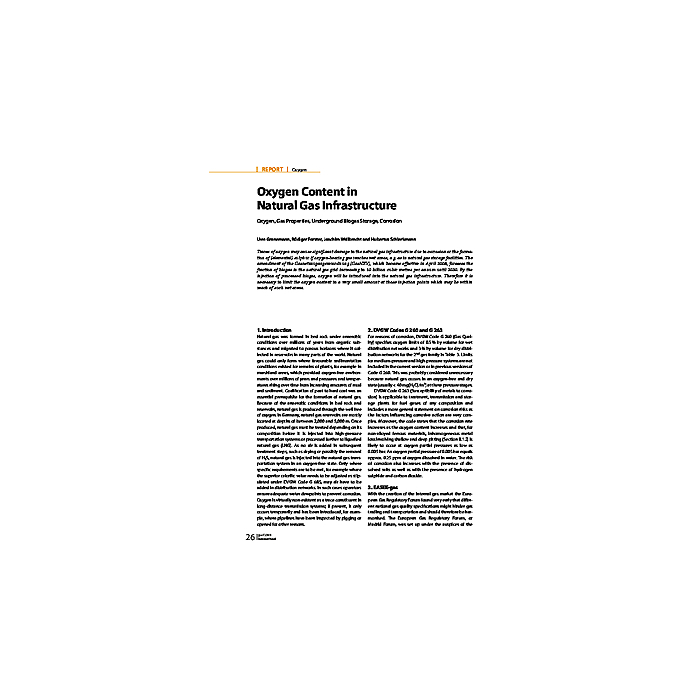Oxygen Content in Natural Gas Infrastructure
4,90 €
Auf Lager
Artikelnummer
05398_2010_SP1_02
Traces of oxygen may cause significant damage to the natural gas infrastructure due to corrosion or the formation of (elemental) sulphur if oxygen-bearing gas reaches wet areas, e.g. as in natural gas storage facilities. The amendment of the Gasnetzzugangsverordnung (GasNZV), which became effective in April 2008, foresees the fraction of biogas in the natural gas grid increasing to 10 billion cubic metres per annum until 2030. By the injection of processed biogas, oxygen will be introduced into the natural gas infrastructure. Therefore it is necessary to limit the oxygen content to a very small amount at those injection points which may be within reach of such wet areas.
| Autoren | Uwe Gronemann/Rüdiger Forster, Joachim Wallbrecht and Hubertus Schlerkmann |
|---|---|
| Erscheinungsdatum | 30.04.2010 |
| Format | |
| Zeitschrift | gwf - Gas|Erdgas - Special 1 2010 |
| Verlag | DIV Deutscher Industrieverlag GmbH |
| Sprache | Deutsch |
| Seitenzahl | 5 |
| Titel | Oxygen Content in Natural Gas Infrastructure |
| Beschreibung | Traces of oxygen may cause significant damage to the natural gas infrastructure due to corrosion or the formation of (elemental) sulphur if oxygen-bearing gas reaches wet areas, e.g. as in natural gas storage facilities. The amendment of the Gasnetzzugangsverordnung (GasNZV), which became effective in April 2008, foresees the fraction of biogas in the natural gas grid increasing to 10 billion cubic metres per annum until 2030. By the injection of processed biogas, oxygen will be introduced into the natural gas infrastructure. Therefore it is necessary to limit the oxygen content to a very small amount at those injection points which may be within reach of such wet areas. |
Eigene Bewertung schreiben


